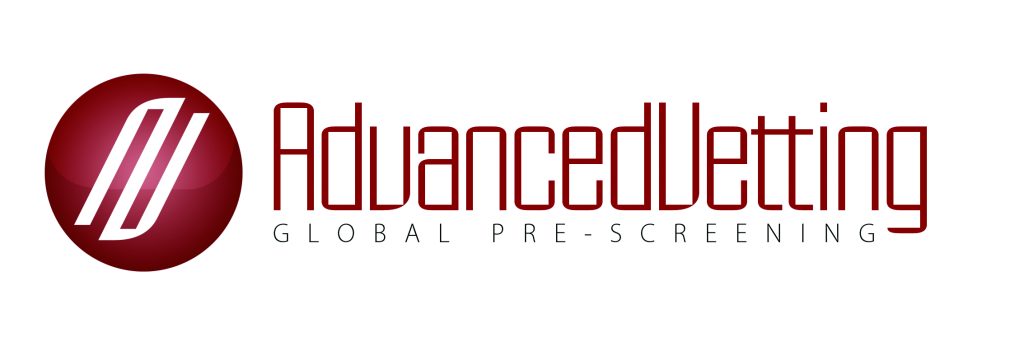| Our online presence says a lot about who we are, personally and professionally. More companies are turning to online tools to streamline their hiring processes. Consequently, the use of social media screening has increased.
Employers are using this method to gain deeper insights into candidates. They want to understand beyond what’s listed on resumes and cover letters. But while social media screening can provide valuable information, it also raises questions about privacy, fairness, and its role in shaping hiring decisions. We look at the impact of social media screening on hiring decisions and discuss whether it’s a tool that benefits employers and job seekers.
What Is Social Media Screening?Social media screening is when employers check a candidate’s social media profiles as part of the hiring process. Traditional background checks focus on qualifications, job history, and criminal records. In contrast, social media screening looks at public content shared on platforms like LinkedIn, X (formerly Twitter), Facebook, and Instagram.
How Is Social Media Screening Changing the Recruitment Landscape?Social media screening is becoming a bigger part of the hiring process. A recent survey shows that 91% of UK employers now include social media checks in their hiring strategy. An additional report shows that 80% of companies routinely screen candidates’ social media profiles. This shift reflects a change in how companies evaluate candidates beyond just CVs and interviews. By looking at a candidate’s social media, employers get a clearer view of their character, judgement, and behaviour – things that might not come through in the usual recruitment steps.
What Do Employers Find During Social Media Background Checks?Social media screening often reveals information that can impact hiring decisions. Some common things employers find include: Professional DiscrepanciesEmployers sometimes find information on social media that doesn’t match what’s on a candidate’s CV. Inappropriate ContentSome candidates are rejected because of things they’ve posted online. This includes discriminatory comments or inappropriate photos. According to a survey, 21% of recruiters have turned down candidates after looking them up on Facebook. Positive AttributesSocial media checks don’t always lead to rejection. Some recruiters are more likely to hire someone after seeing positive signs. For example, volunteering, professional engagement, or thoughtful posts. Communication SkillsHow a candidate writes and communicates online gives employers a clear idea of their writing skills. For many jobs, this is an important part of the role. These insights show that social media screening is no longer just an extra step. It can be a key part of hiring decisions.
How Do Social Media Discoveries Influence Hiring Outcomes?Social media screening can have a big impact on hiring decisions:
Social media checks can help UK employers spot potential problems early, before they make a final hiring choice.
What Specific Content Influences Hiring Decisions?Certain types of social media content often affect hiring decisions: Discriminatory LanguagePosts that show prejudice against protected groups can seriously damage a candidate’s chances. Professional EngagementShowing an interest in the industry leaves a good impression on employers. For example, sharing industry news or taking part in professional discussions. Confidentiality ConcernsConfidentiality is paramount to employers. Say a candidate shares private information from a past job. This raises serious concerns about a candidate’s trustworthiness. Unprofessional BehaviourPosts about illegal activities or inappropriate behaviour can be harmful. Employers may think twice about hiring a candidate. Communication StyleThe way a candidate writes online shows their communication skills. This is important for many roles. These examples show how social media content can directly shape hiring decisions.
How Do Employers Balance Social Media Findings with Other Screening Checks?Employers use social media screening alongside other pre-employment checks. These include reference checks, qualification verification, and sometimes criminal record checks. Many organisations look at social media findings in context. They often give candidates a chance to explain anything concerning before making a final decision. Recent social media activity usually matters more than older posts. Employers typically focus on a candidate’s current behaviour. These measures ensure social media is just one part of the pre-employment screening process. This helps to create a fair and complete approach to hiring.
What Legal Considerations Impact Social Media Screening?UK employers must follow certain laws when using social media screening in hiring decisions. The Data Protection Act 2018 and UK GDPR require employers to be clear about how they collect and use information from candidates’ social media profiles. The Equality Act 2010 also protects candidates from discrimination based on things like race, gender, or religion, which might be seen on social media. Employers must show that their social media checks are fair, relevant to the job, and not excessive. These legal rules help guide how companies use social media findings. They often require companies to explain any decisions influenced by this information.
How Can Organisations Implement Effective Social Media Screening?To maximise the positive impact of social media screening on hiring decisions:
What Are the Potential Pitfalls of Social Media Background Checks?Social media screening can give useful insights, but there are some risks. Employers need to respect privacy and only look at what’s publicly available. They also must follow data protection and anti-discrimination laws. There’s a risk of unconscious bias, where personal opinions can unfairly affect decisions. Social media posts can also be taken out of context, making it hard to judge fairly. Another challenge is that not all candidates are active on social media. This can put some people at a disadvantage. Working with professional screening companies can help businesses handle these issues. Plus, they’ll still get helpful information from social media checks.
Enhancing Your Hiring Decisions with Professional Social Media ScreeningSocial media screening has changed the way organisations hire. It gives valuable insight into a candidate’s character, judgement, and behaviour. When done professionally and fairly, these checks can help you make better hiring choices and lower the risk to your business. Partner with Advanced Vetting TodayAdvanced Vetting offers social media screening services that follow UK rules and laws. Our team provides clear, compliant reports that give you a fuller picture of your candidates. Get in touch today to find out how our services can support your hiring and help you make confident decisions. Additional sources: https://standout-cv.com/stats/social-media-recruitment-statistics https://measuredability.com/recruiters-looking-at-social-media-profiles-2/ |






